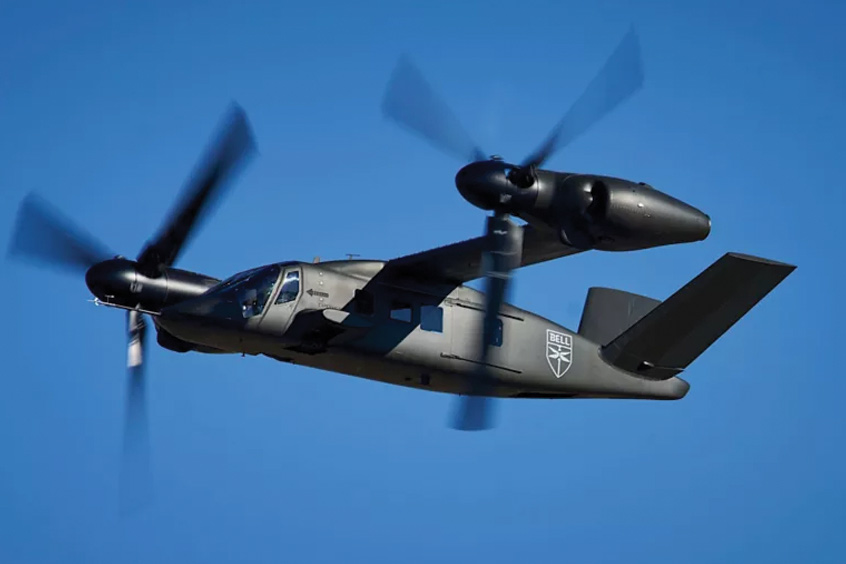LiquidPiston, developer of efficient engine technology and hybrid power systems, has been granted a $9 million award from the U.S. Army to design, build and demonstrate an advanced, heavy-fueled combustion engine that uses up to 30% less fuel than comparable gasoline-powered engines in the same power class and reduces size and weight by up to 10 times over diesel engines with comparable power output.
The engine will be optimised for Jet A, JP8 and F24 fuels, and will be capable of integrating within hybrid electric propulsion systems and generators. With these advances, the LiquidPiston engine will support improved power and propulsion for unmanned aircraft systems, extended range for ground, sea and air vehicles, more efficient auxiliary power units, and increased power capability with reduced logistical burden for Army personnel as a result of a lighter, smaller and hence more portable generators.
“The current UAS engines are not designed for military fuels. This causes performance and reliability issues with the component technologies,” says Dr. Mike Kweon, program manager, Versatile Tactical Power and Propulsion Essential Research Program (VICTOR ERP) at the U.S. Army Combat Capabilities Development Command Army Research Laboratory. “DEVCOM ARL's Versatile Tactical Power and Propulsion Essential Research Program has partnered with industry, academia and other government organizations in the development of technologies to address this void. By engaging with combustion engine innovators like LiquidPiston, ARL is demonstrating our commitment to modernizing the U.S. Army's power and propulsion systems to support our warfighters with unmatched capabilities.”
Heavy-fuel-capable engines in the power class required for small to medium UAS propulsion are not provided by current small piston engine manufacturers. Currently-available engines are designed for gasoline, aviation gasoline (or Avgas) and other “light” fuels which necessitate a second fuel supply chain for the US military, with the associated extra costs and risks to personnel. Additionally, most UAS engines are not manufactured domestically in the U.S., presenting potential supply chain issues, and suffer from inadequate performance, suboptimal reliability, and increased life-cycle costs, the company says.
To address these challenges, LiquidPiston has kicked off a project to support the development of a new, compact, heavy-fuel-capable engine and power system for use in future UAS and generators. These efforts support the needs of the Army's Future Vertical Lift, Next Generation Combat Vehicle, and Soldier Lethality Modernization Priorities.
“This ARL award will help us progress the technology readiness of our X-Engine, topping off the work of over 15 years of R&D and more than 70 patents,” says Alec Shkolnik, founder and ceo of LiquidPiston. “We are honoured by the Army's support and look forward to making a significant contribution to the VICTOR ERP Goals, with the introduction of an ultra-compact, lightweight, and heavy-fueled engine to power the Army's future vehicles and generators.”
LiquidPiston's Compact Efficient Rotary Engine Program will focus on further development of the company's X-Engine which uses the breakthrough thermodynamic concepts of the company's patented High-Efficiency Hybrid Cycle (HEHC) in a totally re-imagined compact rotary engine architecture that overcomes the limitations of the traditional Wankel rotary engine. The result is a purpose-designed power source for auxiliary and hybrid-electric propulsion platforms where portability, efficiency, low maintenance and jet fuel compatibility all work to overcome current range and payload shortcomings.
| Contact details from our directory: | |
| LiquidPiston, Inc. | Rotary Engines |
| Related directory sectors: |
| Engines |
Weekly news by email:
See the latest Bulletin, and sign up free‑of‑charge for future editions.

Honeywell supplies LED landing search light for MV-75

Indra advances UAV collision avoidance with 360-degree detection trials

Northrop Grumman delivers 1,500th F-35 centre fuselage from Palmdale
Kratos expands in Birmingham with systems integration facility